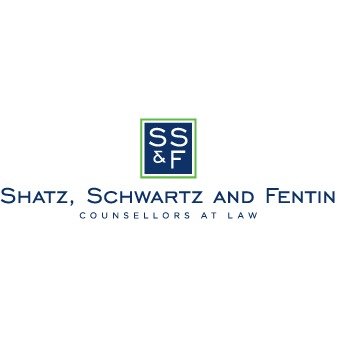Best Land Use & Zoning Lawyers in Massachusetts
Share your needs with us, get contacted by law firms.
Free. Takes 2 min.
Free Guide to Hiring a Real Estate Lawyer
Or refine your search by selecting a city:
List of the best lawyers in Massachusetts, United States
About Land Use & Zoning Law in Massachusetts, United States
Land use and zoning law in Massachusetts governs how land and property can be used throughout the state. These laws are designed to ensure that residential, commercial, industrial, agricultural, and mixed-use areas are properly managed to balance development, environmental protection, and community needs. Typically, each city and town in Massachusetts creates its own zoning bylaws or ordinances, based on the state’s Zoning Act (Massachusetts General Laws Chapter 40A). These local rules determine what types of structures and uses are allowed in specific areas and create processes for obtaining necessary approvals for variances, special permits, and site plan reviews.
Why You May Need a Lawyer
People encounter land use and zoning issues for various reasons, and legal guidance is often critical when rights and livelihoods are at stake. Common situations where a lawyer’s assistance is needed include:
- Seeking or opposing zoning variances or special permits for property development or changes in use
- Navigating complexities with local zoning boards or planning boards
- Addressing violations or enforcement actions imposed by local authorities
- Understanding property rights and restrictions for buying, selling, or leasing land
- Resolving disputes with neighbors over property boundaries, easements, or proposed projects
- Pursuing or contesting zoning changes that affect property value or use
- Exploring affordable housing development or projects governed by Massachusetts Chapter 40B
- Protecting wetlands, historical sites, or environmentally sensitive areas from development
- Managing concerns relating to the permitting of businesses, renewable energy projects, or marijuana establishments
An experienced Massachusetts land use and zoning attorney can help you assess your rights, represent your interests before local boards or in court, and strategize for successful outcomes.
Local Laws Overview
In Massachusetts, land use and zoning laws are established primarily at the municipal level, although they are framed by state statutes. Key elements include:
- Zoning Districts: Each municipality divides its land into districts (such as residential, commercial, or industrial) that control permitted uses and allowable densities.
- Zoning Bylaws or Ordinances: These local rules set forth requirements for building setbacks, height restrictions, lot sizes, parking, signage, and other design standards.
- Special Permits and Variances: Local zoning boards or planning boards can grant exceptions to zoning rules through special permit processes or variances, each with specific criteria that must be met.
- Site Plan Review: Certain developments may need site plan review to assess traffic, environmental impacts, and neighborhood compatibility.
- Comprehensive Permit (Chapter 40B): This state law allows developers to bypass some local zoning restrictions when building affordable housing, provided certain conditions are met.
- Building and Environmental Regulations: State and federal laws can further affect land use, for example through the Massachusetts Wetlands Protection Act or environmental impact reviews.
Because municipalities have wide latitude in the creation and enforcement of local zoning rules, knowing the specific bylaws and procedures in your locality is essential.
Frequently Asked Questions
What is the Zoning Act in Massachusetts?
The Zoning Act, officially Massachusetts General Laws Chapter 40A, is the state law that gives cities and towns the authority to regulate zoning. It outlines procedures for creating local zoning bylaws, holding public hearings, and addressing appeals or variances.
What is a zoning variance and how do I apply for one?
A variance is special permission to use land in a way that does not comply with local zoning rules. You can apply for a variance through your city or town’s zoning board of appeals, providing evidence that the existing zoning imposes a unique hardship on your property.
What is a special permit?
A special permit allows for certain land uses that are conditionally permitted in that zoning district, subject to approval by a designated local board. Applicants must meet specific criteria set in local bylaws, and the process typically involves public hearings.
How can I find out my property’s zoning designation?
Zoning designations for any property can usually be found on your city or town’s website or by contacting the local planning or building department. Zoning maps and bylaws are generally publicly available.
Can zoning laws be changed?
Yes, municipalities can amend zoning bylaws, often through a process involving public hearings, planning board recommendations, and approval by a town meeting or city council.
What are my options if I disagree with a zoning decision?
If you disagree with a zoning decision, such as a denied variance or permit, you can appeal to the local zoning board of appeals. Further appeals can be made to the Massachusetts Land Court or Superior Court.
Do zoning laws affect building renovations or additions?
Yes, even minor renovations or additions often require review to ensure compliance with zoning bylaws regarding things like setbacks, height limits, and lot coverage.
What is Chapter 40B and how does it affect affordable housing?
Chapter 40B is a Massachusetts law that promotes affordable housing by allowing developers to bypass some local zoning restrictions in communities where affordable housing is scarce, provided a certain percentage of the project is reserved for low- or moderate-income residents.
What are common enforcement actions for zoning violations?
Typical enforcement actions include written notices of violation, fines, orders to cease and desist, and sometimes legal proceedings. Property owners have the right to respond or appeal enforcement actions.
Do state environmental laws affect how I can use my land?
Yes, state and federal environmental laws, such as the Wetlands Protection Act, may impose additional restrictions or requirements for certain land uses, particularly near water bodies, wetlands, or protected habitats.
Additional Resources
- Massachusetts Office of the Attorney General - Offers guidance on municipal law and zoning dispute resolution
- Massachusetts Department of Housing and Community Development - Resources on Chapter 40B and affordable housing
- Massachusetts Association of Planning Directors - Local planning and zoning information
- Massachusetts Land Court - Handles appeals and disputes related to land use and zoning
- Your Local Town or City Clerk’s Office - Access to zoning bylaws, maps, and permit applications
Next Steps
If you need legal assistance with a land use or zoning matter in Massachusetts:
- Start by identifying the specific issue you are facing and gathering all relevant documents such as property deeds, plans, notices, correspondence from local officials, or enforcement letters.
- Contact your local town or city planning or zoning department for preliminary information.
- Keep records of all communication and deadlines related to your situation.
- Consult with a qualified land use and zoning attorney who is familiar with Massachusetts law and local procedures. Many attorneys offer consultations to help you evaluate your case and determine next steps.
- If time-sensitive matters such as appeals or compliance deadlines are involved, act promptly to preserve your rights and avoid additional penalties or complications.
Navigating land use and zoning issues can be complex, but with the right information and legal support, you can make informed decisions and protect your interests.
Lawzana helps you find the best lawyers and law firms in Massachusetts through a curated and pre-screened list of qualified legal professionals. Our platform offers rankings and detailed profiles of attorneys and law firms, allowing you to compare based on practice areas, including Land Use & Zoning, experience, and client feedback.
Each profile includes a description of the firm's areas of practice, client reviews, team members and partners, year of establishment, spoken languages, office locations, contact information, social media presence, and any published articles or resources. Most firms on our platform speak English and are experienced in both local and international legal matters.
Get a quote from top-rated law firms in Massachusetts, United States — quickly, securely, and without unnecessary hassle.
Disclaimer:
The information provided on this page is for general informational purposes only and does not constitute legal advice. While we strive to ensure the accuracy and relevance of the content, legal information may change over time, and interpretations of the law can vary. You should always consult with a qualified legal professional for advice specific to your situation.
We disclaim all liability for actions taken or not taken based on the content of this page. If you believe any information is incorrect or outdated, please contact us, and we will review and update it where appropriate.
Browse land use & zoning law firms by city in Massachusetts
Refine your search by selecting a city.












